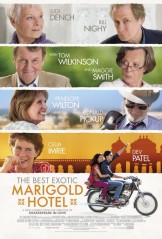Next Monday and Tuesday, the Avanzado 2 groups are welcome to share the language they learned/learnt from The Absolutely True Diary of a Part-Time Indian, what they learned about Indians in the USA, about reservations, about life, about humour/humor, about friendship, about family, about identity, about finding one’s way in spite of hardship…
There are a few interviews to Alexie on the Net. In this one, if you have read the novel, you’ll recognize some of his main themes as a person and as a writer, of course! If you haven’t read the book and you can spare the time this weekend, I’ll let you know I read it in a very cold and very cozy homey weekend. But I love reading books in one or two sittings, because the reading experience kind of transports you to other worlds!
http://www.poetryfoundation.org/features/video/193
About the movie, Smoke Signals, if you all like we can watch it in February, to take a break from Exam Practice activities! 🙂 If you are into movies, I recommend you get a copy of the screenplay. It’s got a lovely intro.
In spite of things — I wrote to his agent and got a huge NO about publishing one of Alexie’s stories for people to read. “Search Engine” is the title and it is included in his collection of stories entitled Ten Little Indians. Considering I’ve been asking four generations of students to get his novel, I must admit it felt bad, because I couldn’t show people his other kind of writing. I wonder where the Fair Use policy went. Quo vadis, Fair Use? Anyway, there’s always Free Culture and Civil Disobedience — I might type it and share it somewhere.
 At last!!! Finished preparing the screenplay of the movie called The Best Exotic Marigold Hotel!
At last!!! Finished preparing the screenplay of the movie called The Best Exotic Marigold Hotel!






 The Farenheit 451 Project will allow you to learn about a few relevant cultural references, among many other things: one is related to this Ray Bradbury novel and to why Michael Moore called his documentary Farenheit 9/11. The other is that Ray Bradbury is also the author of The Martian Chronicles, an amazing collection of stories, totally unrelated to the reality show that took this name.
The Farenheit 451 Project will allow you to learn about a few relevant cultural references, among many other things: one is related to this Ray Bradbury novel and to why Michael Moore called his documentary Farenheit 9/11. The other is that Ray Bradbury is also the author of The Martian Chronicles, an amazing collection of stories, totally unrelated to the reality show that took this name.






